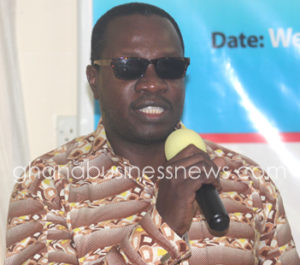Women and Persons with Disabilities want to be part of governance
A forum organized by the Media Foundation for West Africa (MfWA) in collaboration with Abantu for Development ended in Accra with a call on government and all stakeholders to create an enabling environment for the vulnerable in society to be involved within governance space.
The forum brought together civil society actors, stakeholders and the media to discuss issues hindering the involvement of women, the youth and Persons with Disabilities (PWD’s) involvement in governance and decision-making processes.
Mrs Susan Aryeetey, Resource Mobilisation Manager of the International Federation of Women Lawyers (FIDA) said women’s participation in political discourse and leadership is very discouraging although several initiatives have been laid down to reverse the trend.
She said an inclusive governance for women means that government institutions are able to deliver effective services that addresse women’s needs, making it easy for women to balance work and responsibility and where women’s proposals for change are taken on board to benefit both genders equally.
“At the local level where we expect women representation, sadly it is not the case. In 2015 out of 18, 938 male candidates women were just a mere 1,182 and it tells us that over 17,000 women contested in the District Assembly election and this makes it impossible to ensure inclusive governance for women at the local levels.”
She also said although latest statistics reflect a slight increment of women’s participation, the figure falls below international recommendation of 30 per cent.
She urged policy makers to engage the media in advancing the course of women.
Mr Alexander William, a member of the communication team of the Ghana Federation of Disability Organisations said challenges affecting People with Disabilities (PWD’s) continue to grow as the population grows and that there is the need for the development of data and adequate information on the number of PWD’s in the country.
He further asked the new government to include people with disabilities in policy development in general and not when the policies involved people with disabilities directly.
Mr William pointed out adequate information, consultation and dialogue as the three key drive to enhance lives of Persons with Disabilities.
Madam Otiko Afisa Gyaba, Minister-Designate, Gender, Children and Social Protection in her speech as the Guest Speaker noted that the new government is committed to ensuring the effective implementation of all legal and policy frameworks that provides opportunities for marginalized and vulnerable groups to be effectively involved in national development.
She further added that one key policy the government is committed to implementing is the National Social Protection Policy.
This policy aims to deliver a well coordinated, inter-sectoral social protection system which enables people to live in dignity through income support, livelihood empowerment and improved systems of basic services, she further explained.
By Pamela Ofori-Boateng
Copyright ©2017 by Creative Imaginations Publicity
All rights reserved. This article, or any portion thereof may not be reproduced or used in any manner whatsoever without the express written permission of the publisher except for the use of brief quotations in reviews.

